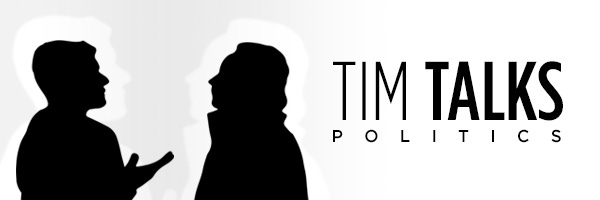Tim Talks Politics - The Weekly Brief, May 25, 2018

The Weekly Brief - May 25, 2018
Hold the summit, leave the nukes
That Nobel Peace Prize will have to wait as the summit between the US and North Korea, scheduled for June 12th in Singapore, has been canceled. The cancellation was initiated by Donald Trump after North Korea publicized two statements, one criticizing South Korea for continuing to participate in joint military exercises with the US, and the second attacking members of the presidential cabinet for likening denuclearization efforts to Libya.
Much of the nuclear diplomacy in the United States over the last couple of weeks, including the withdrawal from the Iran deal, have been seen as posturing as both countries try to optimally position themselves for June 12th. In that context, Trump’s maneuver is the latest countermove in the high stakes diplomacy with Kim. While some type of meeting is likely to happen in the near future, for now, a summit, or the promise of a summit, is merely just another piece on the chessboard.
Let’s call the trade war off
While the cancellation with North Korea may have seemed to be a bit of a diplomatic setback for Trump, American trade representatives came back from China with something of a victory. A new trade deal between the powers appears to more or less avoid an all-out trade war while cutting back the trade deficit between the two countries.
However, critics were quick to weigh in on the deal as being unhelpful. What is noticeable about the criticism of the deal is that it spans the political spectrum. The typically conservative American Enterprise Institute attacked the deal as well as the more moderate to liberal Council on Foreign Relations.
The avoidance of a trade war however short-lived also comes in the context of heightened military tensions between China and Taiwan, and increasing militarization of the South China Sea. One wonders if America did get too little or gave up too much given its still sizable economic advantages over China.
To give you an idea of just how large the American economy is AEI constructed a fascinating map that compares each state in the United States to a country's economy as a way of contextualizing America's almost $20 trillion economy.
Looking at Latin America
The South American continent had its own set of developments, political and economic, over the last couple of weeks. New elections in Venezuela handed president Maduro another term though the elections were highly disputed by the opposition.
Meanwhile, Argentina is suffering yet another economic downturn as “global liquidity conditions tighten.”
Between economic trends and political developments, Latin America is increasingly becoming a new geopolitical arena of world powers. Venezuela is a case in point as the Carnegie Endowment for International Peace reports that it is becoming a new point of contestation for Russia and the United States.
Russia annexes Crimea
And speaking of Russia, remember that conflict with Ukraine? In yet another grand photo op, President Vladimir Putin led a fleet of trucks over a newly built bridge connecting the Crimean Peninsula with the Russian mainland.
This move puts the finishing touch on the Russian annexation of the critical peninsula and its harbor and adding another roadblock to Russia-Ukraine relations.
Iraq elections
Lost in the shuffle over the last couple of weeks were elections in Iraq that saw something of a surprise for US foreign policy.
With somewhat lower turnout than previous elections, a coalition led by populist cleric Muqtada al Sadr (yeah, he’s still around) is poised to take control of the Iraqi Parliament.
Though some may think that al Sadr’s Shia base will make Iraq more welcoming to Iran, this electoral victory is actually more of a blow to Iran’s efforts in gaining influence in Iraq.
Iran: “Too close for missiles, I’m switching to sanctions!”
With US withdrawal from the Iran deal in the rearview mirror, Secretary of State Mike Pompeo outlined America’s strategy going forward. Essentially, the strategy is sanctions until 12 US demands are met.
While it’s more threat than strategy, the American demands tie Iranian proxy efforts with its nuclear program, something the JCPOA had not done. Like the North Korea summit, this too is probably the opening round in what is likely to be diplomatic escalation with the aim of getting to a more comprehensive deal.
Primarily speaking
And finally, the first wave of primaries ahead of November’s midterm elections are happening. To set this midterm election in context, Pew Research published a new study on American life in urban, suburban and rural settings.
Pew Research also published some demographic findings that may also play a role in the midterms: religious, nonwhite Democrats may no longer find a home in the Democratic party.
Take that suggestion with a grain of salt, though, as the Democratic Party, itself, could be looking at a reshaping with several anti-establishment victories in this week’s primaries.
That reshaping process in the Democratic Party will certainly play a role in the elections depending on whether the reshaping pushes the party farther to the left or not. FiveThirtyEight, games out the probabilities of the Dem wave failing to materialize.



